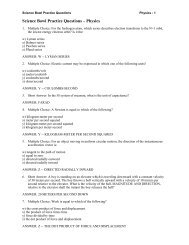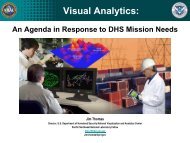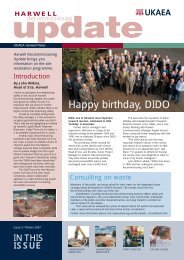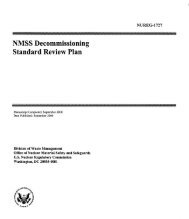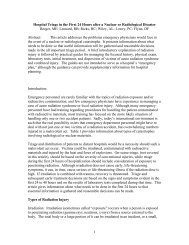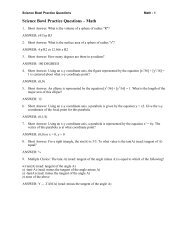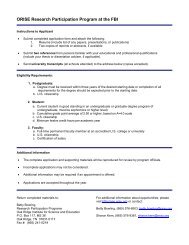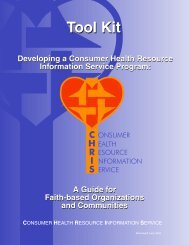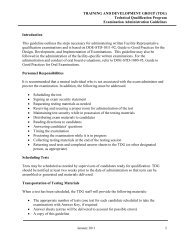Internal and external factors that encourage or discourage
Internal and external factors that encourage or discourage
Internal and external factors that encourage or discourage
You also want an ePaper? Increase the reach of your titles
YUMPU automatically turns print PDFs into web optimized ePapers that Google loves.
"Other findings undersc<strong>or</strong>e the severe limitations of eff<strong>or</strong>ts to change sexual practices by inf<strong>or</strong>mation<br />
alone." (B<strong>and</strong>ura, 1990 [1])<br />
"It is not enough to convince people <strong>that</strong> they should alter risky habits. Most of them also need<br />
guidance on how to translate their concerns into efficacious actions." (B<strong>and</strong>ura, 1990 [1])<br />
"Knowledge of how one is doing alters one's subsequent behavi<strong>or</strong> to the extent <strong>that</strong> it activates selfreactive<br />
influences in the f<strong>or</strong>m of personal goal setting <strong>and</strong> self-evaluative reactions." (B<strong>and</strong>ura, 1991 [2])<br />
"It is not inf<strong>or</strong>mation, but attitudes which need to be targeted in future intervention studies." (Becker,<br />
1988 [3])<br />
"There is little actual evidence <strong>that</strong> an individual's knowledge <strong>and</strong> attitudes toward (the disease)<br />
significantly shape his <strong>or</strong> her behavi<strong>or</strong>. It may well be <strong>that</strong> there is some 'threshold' effect <strong>and</strong> <strong>that</strong>,<br />
beyond a certain level, further increments in knowledge <strong>or</strong> improved attitudes no longer influence<br />
behavi<strong>or</strong>s." (Becker, 1988 [3])<br />
"There is little compelling evidence <strong>that</strong> patient education consistently influences health behavi<strong>or</strong>.<br />
Eff<strong>or</strong>ts to <strong>encourage</strong> compliance with (health-relevant behavi<strong>or</strong>s) must include m<strong>or</strong>e than just the<br />
provision of inf<strong>or</strong>mation." (Becker, 1990 [4])<br />
"It would seem naive to assume <strong>that</strong> massive education concerning the (disease) would be sufficient<br />
to ensure (health-relevant) behavi<strong>or</strong>s." (Becker, 1990 [4])<br />
"One must avoid the naive view <strong>that</strong> compliance is merely a matter of enough inf<strong>or</strong>mation." (Becker,<br />
1990 [4])<br />
"Cognitive avoidance represents a coping strategy <strong>that</strong> may prevent problem recognition <strong>and</strong> the<br />
perceived need to change one's behavi<strong>or</strong>." (Catania, 1990 [5])<br />
"Knowledge of the risk <strong>fact<strong>or</strong>s</strong> involved in (disease) is necessary to determine personal risk<br />
accurately, <strong>and</strong> to develop perceptions of personal susceptibility to infection... This variable may not be<br />
predictive of behavi<strong>or</strong>al change processes." (Catania, 1990 [5])<br />
"Education <strong>that</strong> provides accurate <strong>and</strong> specific instructions on the health utility of (safe) behavi<strong>or</strong>s<br />
<strong>and</strong> suggests ways to increase the enjoyment of low risk activities is expected to facilitate people's<br />
commitment to seek change." (Catania, 1990 [5])<br />
"Health education <strong>that</strong> provides specific inf<strong>or</strong>mation on the best types of help <strong>and</strong> how those<br />
types of help might be obtained would have an imp<strong>or</strong>tant impact on the ('taking action') phase of the<br />
(behavi<strong>or</strong>al change) process." (Catania, 1990 [5])<br />
3





